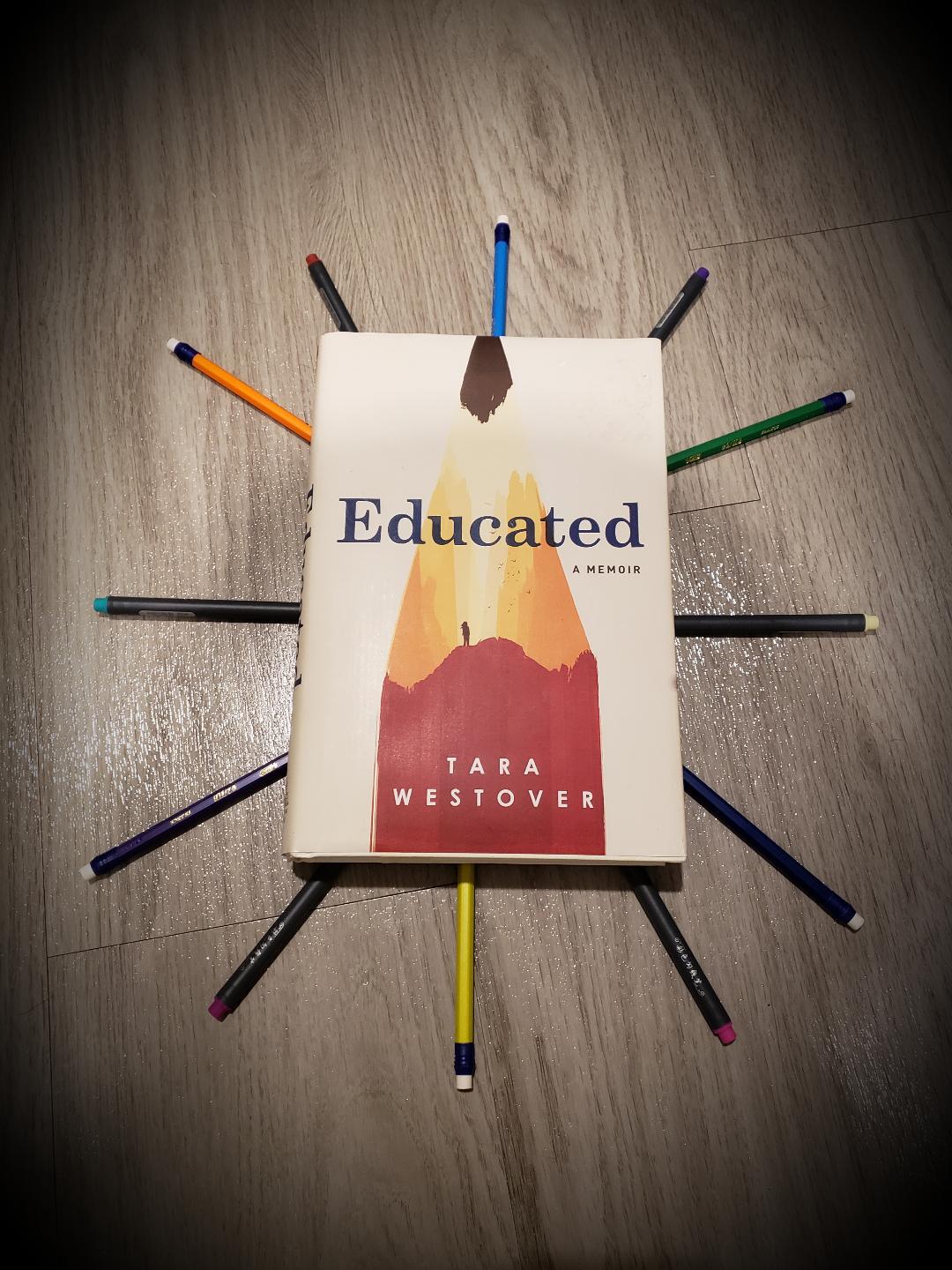Full disclosure; I have never read a memoir.

I know, I know. How can I taut myself as a reading buff and have never even attempted to read someone else’s life story. It’s atrocious, to say the least.
Well, here’s a good selling point for Educated: I generally loathe nonfiction, and it took a reading challenge to get me to select a genre I’m not particularly interested in. I am so glad I did. Pushing myself to read Tara Westover’s grippingly powerful story was one of the best reading decisions I’ve made this year. If you give any book a chance, it should be this one.
Westover came from a family of fundamentalist Mormons living on the outskirts of society in Idaho. Her father Gene, is depicted as a manic man, susceptible to fits of religious passion, extreme paranoia involving government conspiracies and staunch opposition to any agency that could be aligned with the government (including hospitals and public schools). Because of his mounting resistance to such organizations, Gene pulled his older children from school, refused to document the births of his three youngest children, and under no circumstances would allow his family to go to a hospital (on multiple occasions, such instances could have been life or death). This maniacal behavior was later attributed to bipolar disorder, as confirmed to Westover by her mother.
At sixteen, Westover made the choice to take the ACT, and though she’d never received formal, academic based homeschooling, attempted to obtain acceptance into a university. Two of her older brothers who had also strayed from their family’s flock to pursue higher education, acted as Westover’s support network for this endeavor. Westover was accepted to Brigham Young University.
Entering the environment of a university was equivalent to stepping into a completely different world for Westover. Though BYU was a private, Mormon school, Westover found herself amongst a throng of “gentiles” as her father would dub them; people who drank Diet Coke, washed their hands after using the restroom, and women who shamelessly bared their legs and shoulders for all the world to see.
From this point onward, it was a constant and tiresome struggle for Westover to find equilibrium with her two worlds. Her family, who were as fast to lend surprising support (such a helping finance school and making a surprise visit to Harvard), were just as quick to be cruel and make their love conditional (in order for Tara to be allowed back into their family, she had to “stop lying” about her older brother Shawn’s physical abuse). The ping-ponging and instability of such a family had the expected effect; eventually, Westover began suffering from panic attacks and regular breakdowns. With the insistence of a friend, Westover sought counseling services and began to see the abuse she had been enduring for what it was.
Going above and beyond what anyone would have expected, Tara Westover continued on to obtain her PhD from Cambridge University. As Westover puts it, she found herself through education.
As a woman, an educator, and an advocate for learning and literacy, I was so overwhelmed and in awe of Westover’s perseverance over her background, her abusive, manipulative, and fundamentalist family, and all of the cultural handicaps that could very well have prevented her from pursuing an education.
Westover’s internal struggle of trying to leave the manipulative relationships with her father, mother and brother, while remaining loyal to them was frustrating and heartbreaking to read, but so realistic. At one point in the book, she describes it as a kind of Stockholm Syndrome – being inexplicably devoted to those that hurt her the most.
But this isn’t purely a story about irrational familial obligations, or even about finding the passion and tenacity to blaze a different path to higher education. It’s also a story about the tragedy of the marginalized population in the middle of the United States. I found myself wondering how it could be possible for a whole family to be ignored by protective agencies such as CPS (Child Protective Services) after multiple instances of endangerment, involving two extreme car crashes, a severe burning, and multiple head injuries that resulted in obvious concussions that cause other neurological problems because they were untreated. How were they overlooked? How, in this day and age, is it possible for anyone to be as good as invisible?
With her story, Westover has opened up a can of worms by bringing attention to the bizarre and treacherous place she called home for so many years. But she has also brought to light the endurance of the human spirit.
I truly hope you check out this memoir and share your thoughts with our reading community!
Happy & healthy reading!
Alexis
If this sounds like your kind of read, you can get a copy here:
Other memoirs that might peak your interest are:


I know this is an adult best seller, but would it be a could book to put in middle school. I have a few memoirs like The Glass Castle, and kids love it.
I definitely think it’s appropriate for high school students. I think it would depend on the reading/maturity level of the middle schooler. Some of the vocabulary might be a little challenging. And it describes a lot of the abuse Westover suffered at the hands of her brother. I’d consider it on a case by case basis…